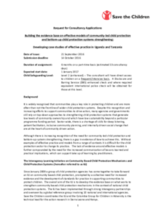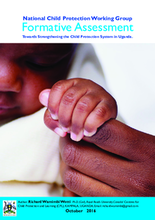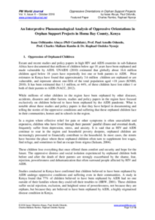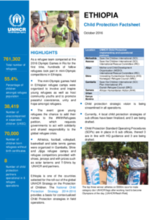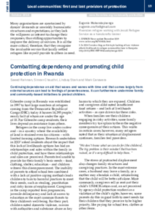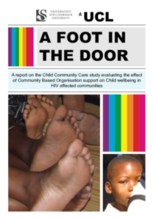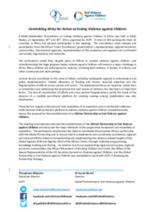Displaying 941 - 950 of 1622
Building the evidence base on effective models of community-led child protection and bottom-up child protection systems strengthening – developing case studies of effective practice in Uganda and Tanzania
The Guardian reveals how police in Eldoret, Kenya chased children out of "California Barracks" into the Sosiani River.
This article from ReliefWeb discusses the release of 21 child soldiers in Sudan.
The Child Protection Working Group (CPWG) commissioned this assessment to assess the effectiveness of the CPWG, structural setup and work methods from 2012 to date in contributing to child protection systems strengthening in Uganda.
This paper is a literature review on the conditions of HIV/AIDS orphans in Kenya.
In this Ethiopia Child Protection Fact Sheet, UNHCR provides the main child protection highlights, issues, and trends for 2014 to 2016.
According to this article from Forced Migration Review, when the majority of aid comes from external sources, it can cause those who receive the aid to feel powerless.
This report evaluates the efficacy of community based organisations and discusses the need for the evaluation of community based care for children living in HIV communities.
Stephen Lewis says grandmother-to-grandmother network got rolling in August 2006 during the International AIDS conference in Toronto.
This is a joint statement issued by ACPF and the Global Partnership to End Violence against Children following the Multi-Stakeholder Consultation on Ending Violence against children in Africa held in Addis Ababa, on September 29th and 30th, 2016.

